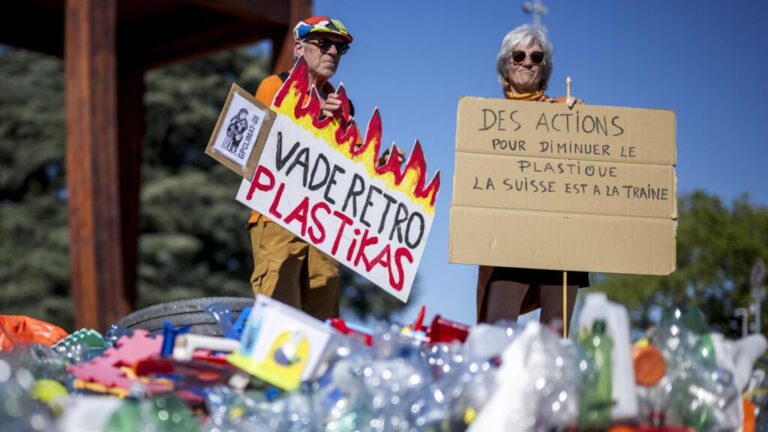Negotiations over a global plastics treaty have once again stalled, as recent talks under the United Nations framework collapsed without agreement. The setback underscores ongoing divisions among countries seeking to address the mounting environmental and health crises linked to plastic pollution. Despite widespread recognition of the problem, differing priorities and economic concerns continue to hamper efforts to establish a binding international agreement. This latest breakdown in negotiations marks yet another challenge in the global push for stronger, coordinated action on plastics waste.
UN Plastic Treaty Negotiations Collapse Amid Persistent Disagreements on Key Provisions
Negotiators at the United Nations once again reached an impasse, unable to bridge divides on critical measures to combat the global plastic crisis. Key sticking points included disagreements over binding targets, financial commitments from wealthy nations, and the scope of plastics covered by the treaty. Countries representing both major plastics producers and vulnerable states clashed over responsibilities, with developing nations pushing for stricter regulations and enhanced funding mechanisms, while others resisted mandates perceived as economically burdensome.
The latest deadlock highlights persistent challenges in forging a consensus on a comprehensive framework that balances environmental urgency with economic realities. Below is a summary of the primary areas of contention that stalled progress during the talks:
- Binding Targets: Whether to enforce legally binding reduction goals or maintain voluntary commitments.
- Financial Support: Debates on how much funding developed countries should contribute to support implementation in developing regions.
- Scope of Plastics: Disagreements over including microplastics and certain single-use items under treaty regulations.
- Accountability Mechanisms: Divergent views on monitoring, reporting, and enforcement structures.
| Issue | Positions | Impact |
|---|---|---|
| Binding Targets | Developing: Support Developed: Oppose |
Delay in establishing measurable goals |
| Financial Support | Developing: Increase funds Developed: Limit contributions |
Funding shortfall threatens implementation |
| Scope of Plastics | Developing: Broad coverage Developed: Narrow scope |
Gaps in treaty effectiveness |
Environmental Advocates Urge Renewed Diplomatic Efforts to Overcome Stalemate
Environmental groups worldwide are sounding the alarm following the latest breakdown in negotiations over the UN plastic treaty. Frustrated by persistent deadlock, activists warn that without decisive diplomatic leadership, the window to address mounting plastic pollution – which threatens marine ecosystems, public health, and global biodiversity – will continue to close. They emphasize that the complex issue requires a collaborative approach from all nations to forge effective, enforceable commitments rather than further delay tactical disagreements.
Key demands from environmental advocates include:
- Stronger binding targets with clear timelines on plastic production and waste reduction
- Increased transparency and accountability mechanisms to monitor compliance
- Support for developing countries to manage plastic waste and promote circular economies
| Stakeholder | Primary Concern | Proposed Solution |
|---|---|---|
| Environmental NGOs | Weak enforcement | Legally binding treaty language |
| Industry Representatives | Cost and innovation barriers | Incentives for sustainable materials |
| Government Delegates | National sovereignty issues | Flexible but accountable frameworks |
Experts Recommend Clearer Frameworks and Binding Commitments to Advance Global Plastic Pollution Solutions
Amid ongoing stalemates in international negotiations, experts emphasize the urgent need for a more defined and enforceable framework to tackle the global plastic crisis. The absence of clear guidelines and binding targets has led to repeated breakdowns in talks, undermining efforts to hold nations accountable. Environmental advocates argue that without concrete commitments, the current voluntary approaches fall short in curbing plastic pollution that continues to devastate marine ecosystems and threaten public health worldwide.
Key recommendations from specialists highlight the necessity of:
- Standardized reporting mechanisms to ensure transparency and comparability across countries.
- Legally binding reduction goals with timelines aimed at drastically lowering plastic production and waste.
- Financial support structures for developing nations to build sustainable waste management infrastructure.
| Key Challenge | Proposed Solution | Expected Impact |
|---|---|---|
| Inconsistent national policies | International binding agreement | Unified global action |
| Lack of enforcement | Clear compliance mechanisms | Better accountability |
| Funding gaps | Dedicated financial aid | Improved waste management |
In Retrospect
As negotiations on the UN plastic treaty once again collapse, the path to a unified global response to plastic pollution remains uncertain. With environmental stakes high and divergent national interests persisting, stakeholders face mounting pressure to break the deadlock and forge an effective agreement before the world’s plastic crisis deepens further. Policymakers and advocates alike will be watching closely as talks are set to resume in the coming months, hopeful for renewed momentum and meaningful progress.




